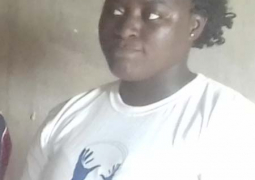Reviewed by Paul Collier
Dambisa Moyo is to aid what Ayaan Hirsi Ali is to Islam. Here is an African woman, articulate, smart, glamorous, delivering a message of brazen political incorrectness: cut aid to
The first stage in her argument is that aid is easy money. If governments had to rely upon private financial markets they would become accountable to lenders, and if they had to rely upon taxation they would become accountable to voters. Aid is like oil, enabling powerful elites to embezzle public revenues. She catalogues evidence, both statistical and anecdotal.
But the core of her argument is that there is a better alternative. Governments could find money for development through financial markets, both international and domestic. Historically, the governments of those countries that have successfully developed funded investment by recourse to international markets. In order to borrow, they needed decent credit ratings; to get the ratings, they had to be transparent and prudent. The discipline of transparency and prudence were as important as the money in promoting development. Some of the stronger African governments have at last started down this road. She also sees huge scope for innovations in micro-finance, such as the group borrowing pioneered by the Grameen Bank in
What should we make of these arguments? As it happens I taught Moyo both at Harvard and
So is there solid evidence to refute her claim that aid worsens governance and so impoverishes? Unfortunately, the research on whether aid is effective is frankly shambolic. At the level of an individual project we can often show it is effective, but this misses Moyo’s point: that what matters is the overall impact on the society.
There is indeed some evidence that aid tends to worsen governance, though whether enough to offset its beneficial effects is unresolved. Certainly, the evidence is sufficiently troubling that respected experts share her concerns. Adrian Wood, formerly chief economist of the Department for International Development, has argued that there should be a ceiling to aid as a proportion of the budget. The consensus academic view, to the extent there is one, is probably that large aid inflows, like large oil revenues, tend to reduce government accountability to citizens.
However, cutting aid may not be the best response. My preferred alternative is to strengthen its potential for “governance conditionality”: aid agencies should insist on both transparent budgeting and free and fair elections. That said, I have to admit that Moyo has a good retort. She shows how feeble aid agencies have been: when occasionally one gets tough, others compensate. Within aid agencies, performance is judged predominantly by short-term criteria such as how much aid is disbursed, rather than longer-term effects on accountability. Based on past behaviour, a government could assume that the aid would keep flowing more or less regardless of what it did.
However, even admitting the severe limits of donor ability to improve governance, I doubt that many of
By the same token, I think that Moyo’s message is over-optimistic. She implies that, were aid cut, African governments would respond by turning to other sources of finance that would make them more accountable. I think this exaggerates the opportunity for alternative finance and underestimates the difficulties African societies face.
Moyo has been unlucky in her timing. In the brief interval between writing and publication, the book's argument has been overtaken by events. The opportunity for African governments to raise money on international markets has evaporated even more rapidly than it opened around four years ago. The global financial crisis has drastically reduced investor appetites for risk: for example, the government of
International investors have over-reacted: in reality the investment opportunities in
As a result of these two changes in mood, suddenly the aid agencies look to be more important as sources of finance for investment than at any time in the last two decades. While the commercial banks have stopped lending, the World Bank has never been as busy.
African societies face problems deeper than their dependence on aid. Divided by ethnic loyalties, they are too large to be nations. Yet with only tiny economies, they lack the scale to be effective states. As a result the vital public goods of security and accountability cannot adequately be provided. In their absence the valuable natural assets that many countries possess become liabilities instead of opportunities for prosperity.
I think that African societies need international help to overcome these problems; it is just that the help they need is not predominantly money. Aid is not a very potent instrument for enhancing either security or accountability. Our obsession with it has detracted from the more important ways in which we can promote development: peacekeeping, security guarantees, trade privileges, and governance.
But we must hope that Moyo's thesis is right:
Paul Collier is professor of economics at
Dambisa Moyo: A global economic strategist at the investment bank Goldman Sachs in
This book is available at Timbooktoo, tel: 4494345.
Read Other Articles In Article (Archive)



